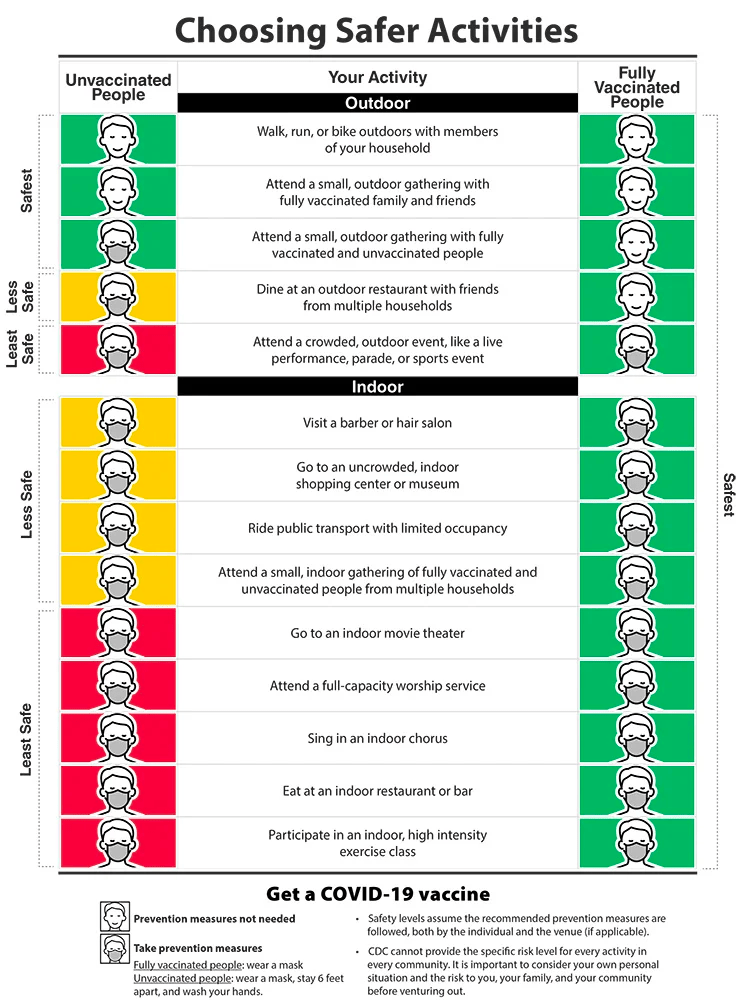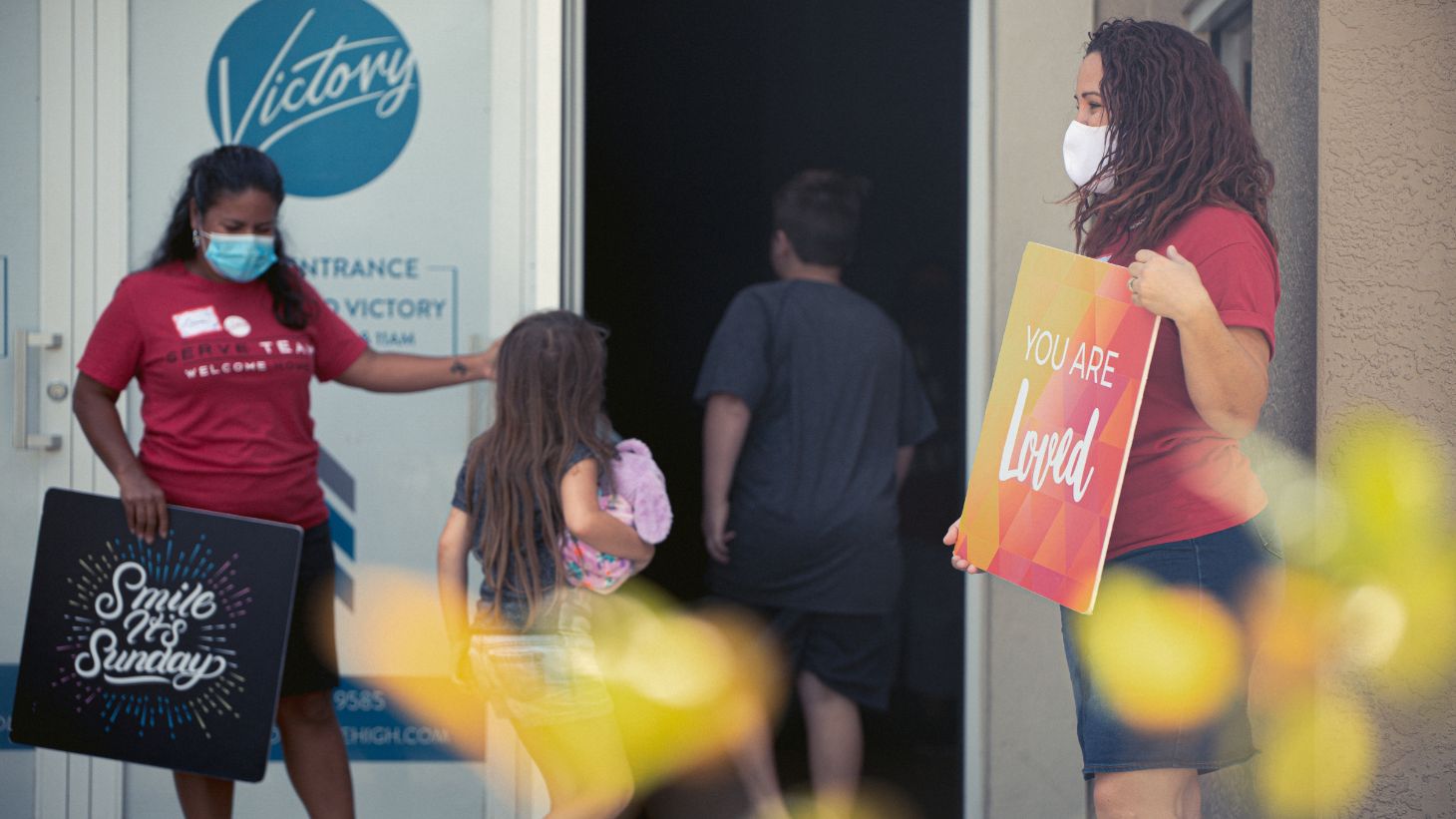The director of the Centers for Disease Control and Prevention loosened the agency’s social distancing recommendations this week, announcing that fully vaccinated people who wear masks can safely attend many indoor events such as worship services.
CDC Director Dr. Rochelle Walensky made the announcement Tuesday during a White House press briefing, where she outlined a number of indoor activities people who wear masks and have received vaccines against COVID-19 can participate in safely—including worship.
“As we gather more and more data on the real-world efficacy of vaccines, we know that masked, fully vaccinated people can safely attend worship services inside,” she said.
Walensky also said that masked, fully vaccinated people can safely go to an indoor restaurant or bar, and “even participate in an indoor exercise class.”
The CDC continues to recommend that fully vaccinated people use masks for indoor activities such as singing in an indoor chorus, going to a movie theater or eating indoors at a restaurant. As for outdoor activities, the CDC generally only recommends masks among fully vaccinated people if they plan on attending a crowded outdoor event such as a concert.
According to the CDC, people are considered fully vaccinated two weeks after they receive the second dose of the Moderna or Pfizer/BioNTech vaccines. They are also considered fully vaccinated two weeks after receiving the Johnson & Johnson vaccine, which only requires one dose.
“The examples shown today show that when you are vaccinated, you can return to many activities safely, and most of them outdoors and unmasked—and begin to get back to normal,” Walensky said.
Officials were quick to note they still recommend widespread mask use for people who are not fully vaccinated, and that many activities remain unsafe for those without the shots.
A slide accompanying the announcement categorized many activities as “less” or “least” safe for people who are not fully inoculated against COVID-19. Attending a full-capacity indoor worship service or singing in a chorus, for instance, were among the actions designated as “least safe” for unvaccinated people.

Also, the CDC stressed that even vaccinated people should continue to take precautions such as generally wearing masks during indoor public settings, avoiding “large-sized” indoor gatherings and wearing “well-fitted masks when visiting indoors with unvaccinated people from multiple households.”
“Generally, for vaccinated people, outdoor activities without a mask are safe. However, we continue to recommend masking in crowded outdoor settings and venues, such as packed stadiums and concerts where there is decreased ability to maintain physical distance and where many unvaccinated people may also be present,” Walensky said. “We will continue to recommend this until widespread vaccination is achieved.”
It’s unclear how the recommendations will impact individual houses of worship, which are typically beholden to state laws as well as internal policies that can differ by denomination or regional group.
Religious groups were among the first to shift their policies when the pandemic began to escalate last year: When an Episcopal rector in Washington, D.C., tested positive for the virus in March 2020—one of the first in the city to come down with COVID-19—the local diocese quickly suspended the use of wine during Communion and drained baptismal fonts.
While the CDC suggestions are guiding principles and not formal federal restrictions, debates over local worship restrictions have raged throughout the pandemic. Despite mass-transmission incidents taking place at worship services and many religious groups shifting to online worship, some faith leaders refused to stop worshipping in person. Some were arrested, and others have sued local and state governments over the restrictions.
For his part, President Joe Biden continued to attend Mass in person throughout the pandemic, and he said in November he believed people can worship indoors if they do so “safely”—although he did not offer details as to what that would mean.











